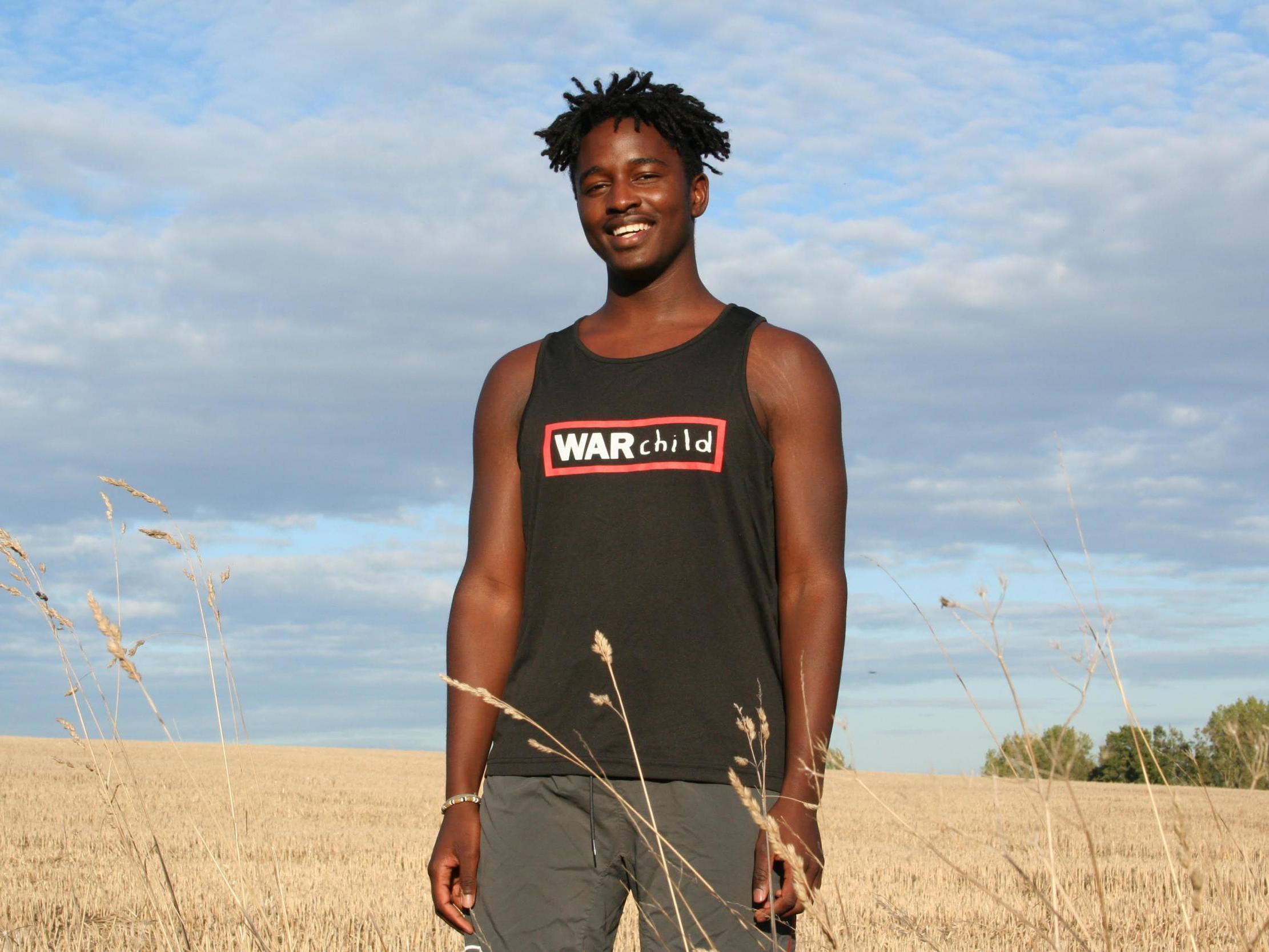Learn to Live: Mental health support is vital for child refugees like me
'You had to sleep with one eye open because you did not know what tomorrow was going to bring'

A teenager whose mother died in a refugee camp in Africa has spoken of the importance of psychosocial support for children fleeing war zones.
Oscar, 17, is now doing his A-levels in a college in Norfolk. He hopes to become a film director one day.
But when he first arrived in the UK at the age of 10, he could not read or write. He knew no English.
Oscar spent most of his childhood on the run – fleeing from his home country, the Democratic Republic of Congo, after a civil war broke out which killed members of his family.
He ended up in a refugee camp in Uganda after his mother heard that there was a chance of escape.
Oscar recalls that his family slept in a room made out of mud, sticks and stones. “It was like just one container of bodies. It was the best we could do,” he said.
And the only source of water was contaminated. “The colour was green and thick and muddy,” he said.
Oscar added: “Back in Uganda, you almost had to sleep with one eye open because you didn’t really know what the next day was going to bring. Everything was just uncertain.”
Oscar tragically lost his mother in the refugee camp because of a lack of medical treatment. He was left to raise his younger brother and sister until a refugee programme moved them to the UK.
But when the 10-year-old arrived in England, the transition was overwhelming. He did not know the language or any of the customs. It took him awhile to adjust to a very different life.
“At first I didn’t know what everyone was thinking or everybody was saying. Even now I understand that lots of people do not understand. They can therefore make incorrect judgments on what is going on.”
He was fortunate to have access to counselling sessions when he first arrived in the UK. “I didn’t realise how much the psychological effect of my childhood would affect me,” he said.
Oscar used to have a bad reaction to the sound of fireworks because it reminded him of gunfire.
Speaking on World Mental Health Day, he said: “Psychosocial help, therapy and counselling really helps children to understand the situation that they were born in and the situation that is still in their head.
“It helps them process what they saw, what they felt, what they heard, and what they smelt to help them manage the situation. That is really important to help anyone.”
Oscar is now a youth advocate for War Child, the charity working with us on our Learn to Live campaign, and he has spoken at a number of high-profile events to raise awareness of the mental health impact on refugees.
Our campaign is linking schools in the UK with children in countries like Jordan, Iraq and the Central African Republic to let children whose lives have been devastated by war know they are not forgotten.
It is hoped the links between students in the UK and their peers in war zones and refugee camps across the world will increase empathy and understanding of the issues facing young people affected by war.
School for Refugees – Zaatari, Jordan
Show all 12Oscar said that he would have benefited from the campaign. “Knowing that someone is out there, knowing that you exist and are caring, that just gives you a boost of life,” he said.
Experts gathered on Tuesday for a vital meeting between the Department for International Development and humanitarian organisations War Child, Save the Children, Terre des Hommes, UNICEF and World Vision, to address issues raised by Learn to Live and to come up with answers.
Oscar said: “I feel that all children should have access to psychosocial support and education. It is a basic human right that is denied to so many. With ongoing psychosocial support and care from someone they can trust, children can start to overcome their fears and torment.”
He added: “I don’t want anyone to go through what I went through. And if there is any way I can stop kids going through the immense trauma that I went through then that is amazing.”
Subscribe to Independent Premium to bookmark this article
Want to bookmark your favourite articles and stories to read or reference later? Start your Independent Premium subscription today.
